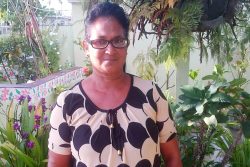By Iva Wharton
President of the Rose Hall Town Youth and Sports Club (RHTYSC), Hilbert Foster is crediting hard work as the main ingredient for the sustained development of women’s cricket in Berbice.
“The Berbice Cricket Board it’s just that we work very hard in whatever we do and we are lucky that we have been able to receive sponsorship,” said Foster.
This year he said at least two female tournaments have been organised, one of which is by the Rose Hall Youth and Sports Club and the other by the Universal DVD Club.
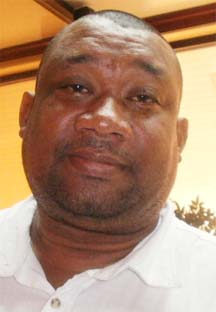
“The Rose Hall Youth and Sports Club also place a lot of attention on female cricket. Tucburg Park also places a lot of emphasis on female cricket. I have also been made to understand that Blairmont, Skeldon and Number 51 are also forming female teams.”
According to Foster, the success of national female cricketers Shemaine Campbell, Erva Giddings, Tremaine Smartt and Subrina Munroe, have also played a great part in encouraging others to come forward.
“I think over all our female cricket is very solid and that is hardball. Georgetown tends to place a lot of emphasis on softball and I guess that is because of the sponsorship. But softball is a second priority for us in Berbice because softball is only played here at a national level and we want our girls to go on to the international scene.”
Foster said that Berbice has approximately 60 active female cricketers with his club having about 22 girls.
The BCB, according to Foster, is a success story because sponsorship is always available whenever they request.
“Shemaine Campbell is a very high role-model in Berbice and as such we have been able to use her to attract new people to the sport.”
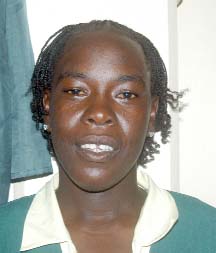
Asked whether attempts are being made to take female cricket to the schools, Foster said there are no such plans at the moment.
“But what we have is a massive caching programme with Guyoil where we are targeting all the areas in Berbice and a number of females have turned up to that.”
He, however, said taking cricket to the schools was an option that will be explored in the near future.
This, he said, will be great for the sport as it will get even more females involved. At the moment, there are a number of females involved in softball cricket and the most difficult task for them is helping the girls to make the transition from softball to hardball.
“Some of them play very good softball but they are very much afraid of the hardball, but we are working on that as we have sent out people to speak to a number of them to come to the Rose Hall club. And I know that Blairmont, Skeldon and Number 51 are working on doing the same.”
Many parents have said that they do not prefer girls to be involved in hardball cricket. And, according to Foster, he understands the point of view of the parents as there is no policy that will cover players if they are injured while playing.
“Another problem that female cricket is having is unlike boys, when girls reach a certain age they go off because boyfriends and husbands come into play. We have lost a number of good girls to boyfriends and husbands who do not want them to be around clubs because other boys are there. We have lost about three good girls because their boyfriends do not want them to play.”
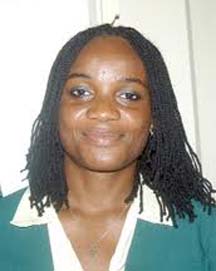
Another issue driving females away from the sport according to Foster is that their sexuality comes up for discussion. In many cases he said they are called ‘Tomboys’.
He also said that in the Indo-Guyanese community, the girls are less likely to get involved in hardball cricket.
“I don’t know the reason why, but Afro Guyanese girls are more involved in hardball cricket. At Rose Hall we have just about two girls of Indian origin, but to get the rest to come is a problem.”
Asked if female cricket attracts a large following in Berbice, Foster said yes.
“Whether it is for cricket or other purposes, a lot of people turn up and you will find parents turning up to see their daughters play than their sons.”
Addressing the meagre stipend and players fee paid to females, Foster said is not healthy for the development of the sport.
“I believe the girls deserve to be paid more because they are the only team making us proud in the West Indies. Shemaine played for the West Indies and returned with a sum that was less that desirable to be making us proud and they are working just as hard as the boys. And they are winning everything and the boys nothing yet the boys are being paid millions and millions and these girls are paid less.”
Foster said if the girls are to be motivated then an official sponsor has to be found by the West Indies Cricket board.
“Then we also have to find ways of keeping them involved. Because if they can make millions like the boys I think they will do better.”
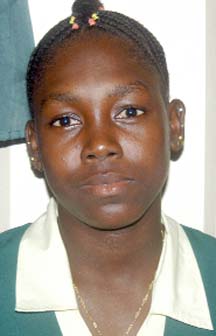
The new formation of the Guyana Cricket Board according to Foster whenever it is elected will have its job cut when it comes to female cricket.
“I think if they want to be successful, they have to recognise that the girls are doing much better than the men. And I think one of the reasons girls are involved in the game is because they love the game while unfortunately, the boys are in it for the money,” he opined.
“It is a job for them. They don’t have an eight hour job, so they depend on the cricket.”
He said that he is confident that more cricket would be played and that women would be given a fair chance. Berbice, he said, is right now the only county producing female cricketers for the West Indies and it is his hope that Demerara and Essequibo can do the same.







